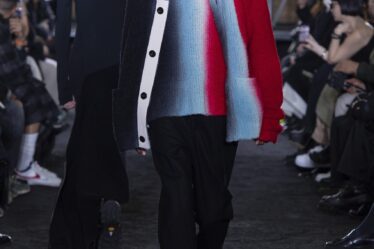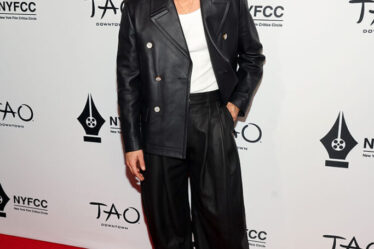
Forever 21, which came to epitomise the fast fashion movement by selling trendy, of-the-moment clothing to teens at bottom-barrel prices, is relaunching in Japan by quietly overhauling itself as an upmarket clothier.
About 80 percent of Forever 21′s new collection, which will launch in the fashion-crazy country Tuesday via online sales and a pop-up store in central Tokyo, will be developed by local partner Adastria Co., Japan’s third-largest apparel maker.
Forever 21 typically targets teenagers and young adults, but is aiming for a wider, upmarket clientele in Japan, hoping to lure women up to their 30s. The brand, known for items like T-shirts with decals, neon sweatshirts and denim short-shorts, will tailor items to the country’s market.
“Our aim is to localise the brand by size, colour and design,” Atsushi Sugita, head of Adastria’s licensing unit overseeing Forever 21 in the country, told Bloomberg in an interview. “The objective is to create a long-lasting brand. Most of the original items don’t fit the Japan market.”
Adastria wants to open about a dozen physical stores in Japan and aims for revenue of ¥10 billion in five years, Sugita said, of which 60 percent of sales would be online. The average item for sale in Japan will cost about ¥4,000 ($30).
Forever 21 stores in Japan typically sold between 800 and 1,000 items, before the chain withdrew from the market in 2019. Adastria has streamlined the number of pieces now available in the country down to between 120 and 150, and physical stores will be smaller. The quality of materials used has been improved, he added.
The Japan move comes as the popularity of fast fashion juggernaut Shein piles pressure on traditional brands including Forever 21 and H&M and puts the spotlight on the sustainability of the industry. Adastria is interested in expanding Forever 21 to other Asian markets, Sugita said, adding that expanding a brand that’s already widely recognized is quicker than starting from scratch.
Forever 21 was established in Los Angeles in the 1980s and grew rapidly in the 2000s with the global rise of fast fashion. It filed for Chapter 11 bankruptcy in 2019, submerged by the upkeep on its large physical stores, poor inventory management and losses in some international markets. The company was then bought by a consortium led by Simon Property Group Brookfield Property Partners LP and Authentic Brand Group LLC.
The relaunch is being overseen by Adastria with Itochu Corp., the Japanese trading firm that bought the commercial rights to Forever 21 in Japan in September.
By Grace Huang and Kanoko Matsuyama
Learn more:
Forever 21 Bets You Want to Dress Like Your Roblox Avatar
There’s no shortage of skepticism about the metaverse, but one legitimate business strategy could be using virtual worlds as a testing ground for physical products.



